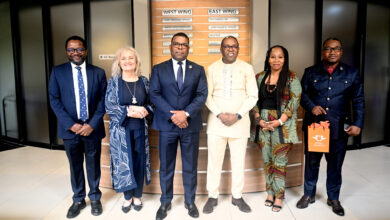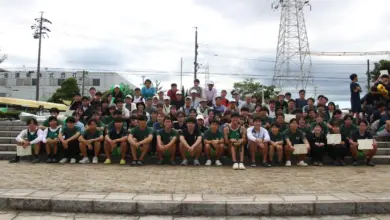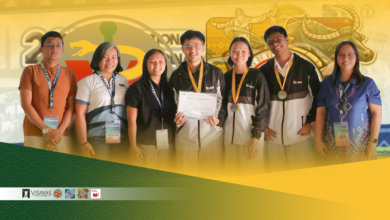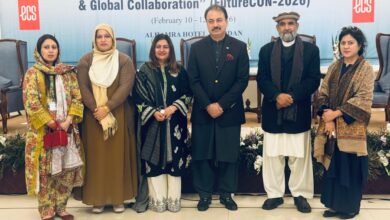Global University Leaders Warn About AI Access Disparities
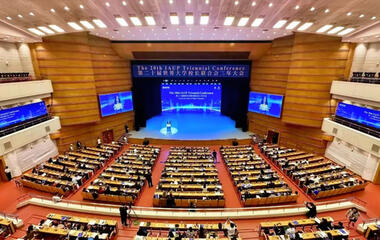
University presidents from around the world, alongside the UN Secretary-General and UNESCO’s Assistant Director-General for Education, addressed the need to bridge disparities in access to artificial intelligence (AI) during the recent International Association of University Presidents (IAUP) conference. This conference marked the first in-person gathering since the pandemic began.
Conference Overview
Held from October 13-15 in Beijing, China, the 2024 IAUP Triennial Conference focused on the theme “AI and the Future of Higher Education.” The event included nine sessions that thoroughly examined the implications of AI for universities, covering topics such as educational innovation, ethics, and governance.
Collaboration and Participation
The conference was co-organized with the China Association of Higher Education, the largest higher education association in the country, and involved over 20 international organizations. Keynote speakers addressed various dimensions of AI in education, commencing their discussions on October 14.
Goals and Focus Areas
A central goal highlighted at the conference was the use of AI to foster equal access to quality education. Participants emphasized the potential of AI technologies to facilitate personalized, accessible, and lifelong learning opportunities.
Encouragement from UN Leadership
In a written statement to the conference, UN Secretary-General Antonio Guterres encouraged university leaders to utilize AI to bolster critical thinking and creativity, ensuring that the benefits of these technologies are experienced universally. Guterres stressed the importance of addressing the AI access gap, establishing common standards, and equipping underserved regions with necessary tools and training.
Advocacy for Inclusivity
Additional speakers, including Stefania Giannini from UNESCO and Dr. Ted Mitchell, President of the American Council on Education, advocated for the meaningful integration of AI to promote inclusivity and equity in education. Giannini pointed out the necessity for judicious application of AI technologies to avoid widening existing gaps in educational access.
Nobel Prizes Announcement
The conference also brought attention to the announcement of the 2024 Nobel Prizes in Physics and Chemistry, highlighting the impact of artificial intelligence in the field. AI pioneers associated with Google received recognition, prompting discussions regarding the eligibility criteria for these awards. Nobel Laureate Professor Michael Levitt commented on this situation and suggested that university leaders need to carefully consider the nature of AI-enabled educational offerings.
Importance of Educational Principles
Further discussions included comments from Professor Ian White, Vice-Chancellor at the University of Bath, who underscored the importance of educational institutions adhering to robust principles of teaching and learning to achieve effective outcomes. White noted the significance of instructing students on prudent AI use while acknowledging the associated risks.
Socioeconomic Disparities
Despite advancements brought about by generative AI, persistent socioeconomic disparities in education were noted as concerning. Levitt indicated that access to education has become increasingly uneven, especially in wealthier nations, cautioning that insufficient educational qualifications could lead to lasting poverty.
Future of Learning
Keynote sessions projected a future characterized by personalized and adaptive learning experiences. Future developments may include broader implementation of AI-powered virtual tutors designed to deliver tailored educational support based on individual student needs.
AI’s Role in Mitigating Gaps
Dr. Lamont Repollet, President of Kean University, discussed AI’s potential to mitigate achievement gaps by providing real-time, customized assistance to disadvantaged learners. He highlighted how personalized learning experiences facilitated by AI could equip marginalized students with essential resources for academic success.
Environmental Considerations
The broader societal implications of AI were also part of the discussions, particularly the environmental impact associated with training extensive AI models, which generally require more energy than traditional data centers.
Historical Significance
Historically, the IAUP conference marks a significant event as it was the first time it has been hosted in China since its founding 60 years ago. This event also signified a leadership transition within the IAUP as Dr. Fernando Léon García transferred the presidency to Dr. Shawn Chen, the founder of Sias University in Zhengzhou, China.
Embracing Digital Education
Dr. Chen noted the readiness of educational institutions to embrace digital education in light of the pandemic, commenting on how what was once deemed impractical is now filled with potential, though concerns about adopting AI tools persist. He underscored the urgency of discussions centered on AI’s transformative role in higher education.
Vision for Higher Education
Professor Youmin Xi of Xi’an Jiaotong-Liverpool University remarked that the conference facilitated valuable knowledge sharing and insights regarding the integration of AI into educational practices. He proposed a tech-driven, human-centered vision for the future of higher education, urging institutions to adapt to these changes.
Conclusion
The conference ultimately aimed to stimulate meaningful discussions that could lead to actionable recommendations for university leaders as they navigate the complexities of AI in education. Dr. Chen reaffirmed the IAUP’s commitment to ongoing dialogue surrounding AI and its implications for the future of higher education.
Original source: University World News.

